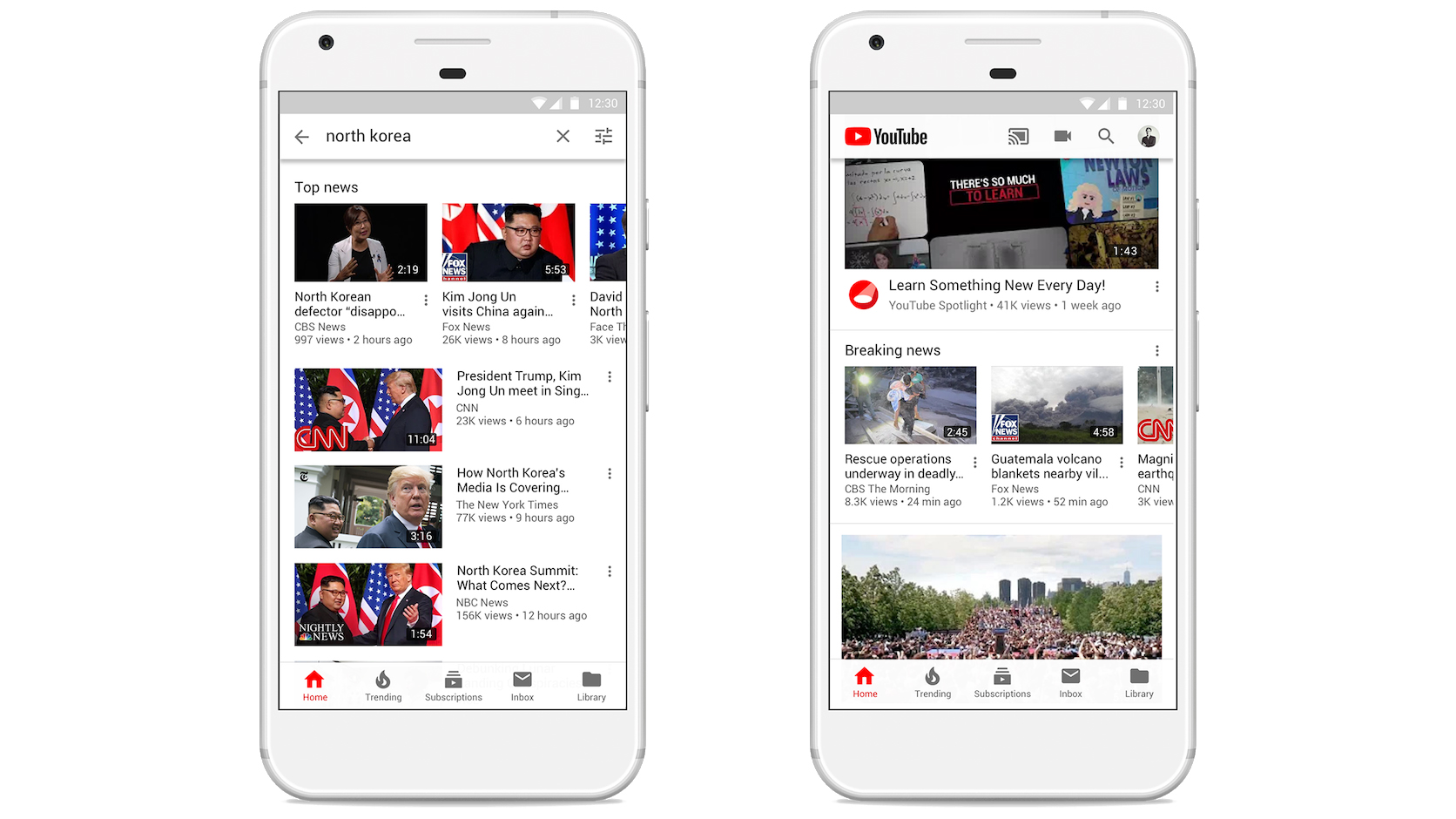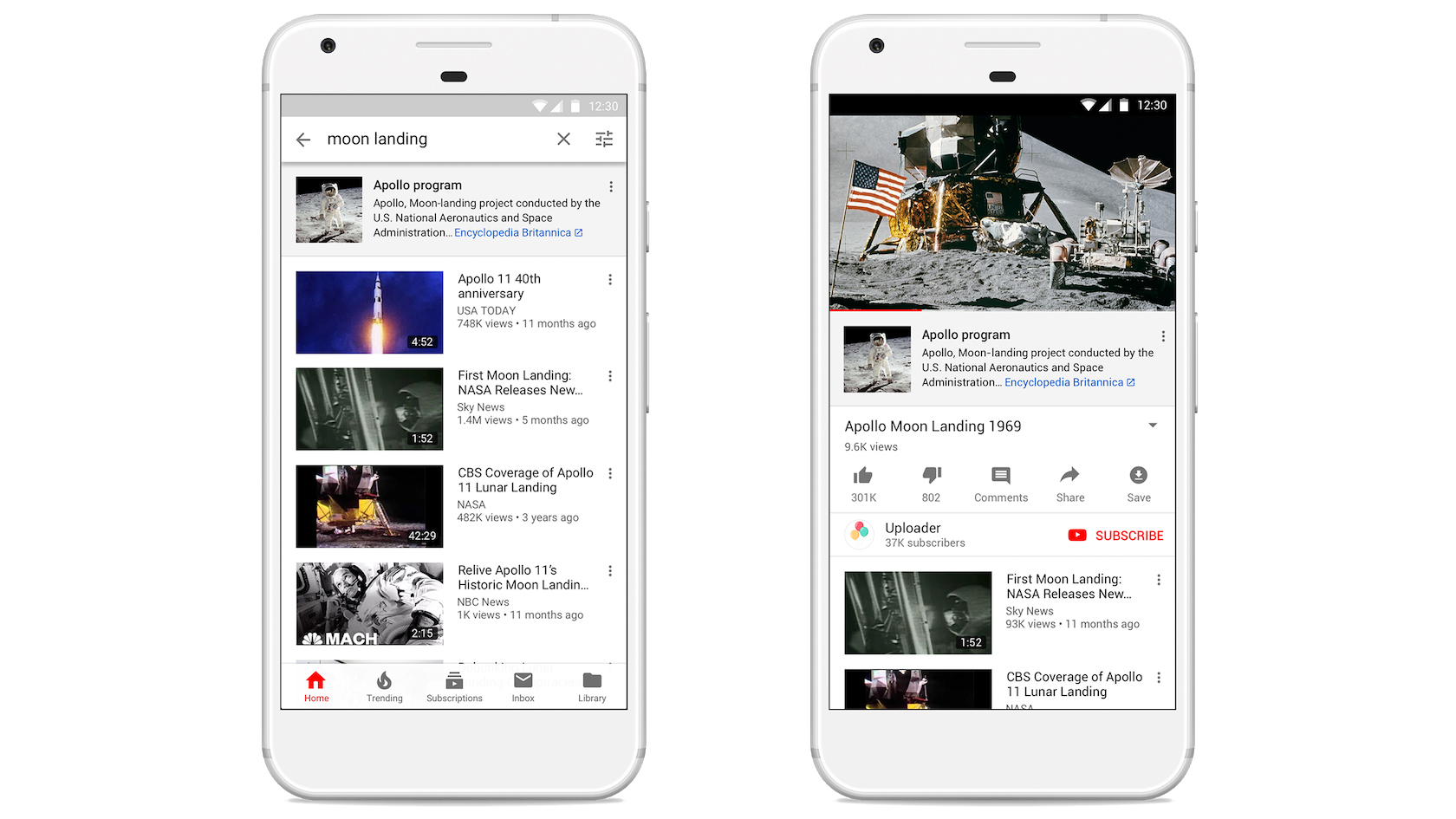YouTube will begin promoting and paying for legitimate news
Some new app features already on show

Announced in the latest entry of Google’s YouTube blog, the video streaming platform will engage in a host of new initiatives, and introduce several new features, that aim to promote and fund legitimate journalism and news sources.
The announcement forms part of the Google News Initiative, which saw the company pledge $300 million to support trusted news sources in March of this year, $25 million of which will now be assigned to “support the future of news” on YouTube.
This money will go towards employing experts to help develop news-specific features, funding sustainable video operations in 20 global markets, and expanding YouTube’s existing support team that are dedicated to training and assisting news organizations around the world.
Bringing up the news
YouTube’s app and desktop client have begun implementing some new features in certain countries, with more expected to roll out over the coming months to a larger pool of regions.
In the US, the service will be trialing a short preview of verified news articles in the initial hours of news stories breaking, so that you can quickly learn the context behind the event and click through for more detailed information.

Already available in 17 countries including the US and UK, YouTube’s Top News and Breaking News will display videos from known news sources in relevant search results for the former, and as a section on the home page in regards to the latter. These features will be available in twice as many regions in the coming months, according to the post.
For YouTube’s TV client, more users in the US will start to see local news surfacing on their homepage, and this service will be “expanding to dozens more markets like Cincinnati, Las Vegas and Kansas City”.
Get daily insight, inspiration and deals in your inbox
Sign up for breaking news, reviews, opinion, top tech deals, and more.
Misinformation
Users watching “videos on a small number of well-established historical and scientific topics that have often been subject to misinformation” will be presented with a brief contextual summary from sources such as Wikipedia and Encyclopædia Britannica.

To help with this contextualization, YouTube will also be teaming up with a variety of organizations that are dedicated to digital literacy education, particularly with MediaWise, which aims to help a million US teens discern legitimate sources from fake news.
While the notion of promoting legitimate news sources over fake news and disinformation is a noble one, there is still a great deal of debate over which side of the divide certain publications would land on – particularly where citizen’s political leanings dictate the news sources they trust.
